Dentistry
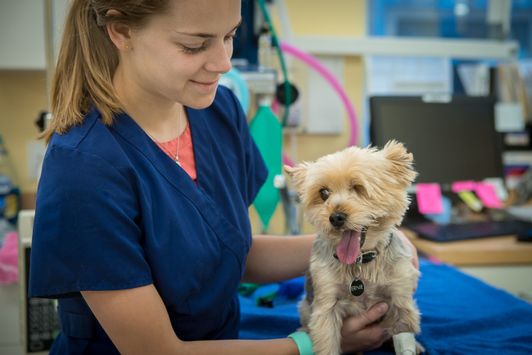
Jackson Animal Hospital provides the highest standard of dental care for dogs and cats- and offers everything from dental cleanings and x-rays to full mouth extractions.
You might find it surprising that your companion pet suffers from the same oral health problems that we do. Bad breath, discolored teeth and swollen or bleeding gums are indications that your pet’s teeth need to be examined. Eighty percent of dogs and seventy percent of cats will show signs of dental disease by the age of three.
Left untreated, dental problems will cause your pet unnecessary pain, anorexia, weight loss and can even lead to lung, kidney, liver and heart problems when bacteria builds up and enters the bloodstream.
Thus, good dental hygiene is really important to maintaining your pet’s health. Routine maintenance by brushing is very important and something that we strongly encourage owners to do at home. However, brushing alone cannot get beneath the gums to fully remove the harmful bacteria and once tartar is on teeth, brushing alone will not remove it.
Tartar covered teeth will not only cause bad breath, but will also lead to periodontal disease and can cause abscesses that form under the gum line (at the roots of the teeth). A dog or cat’s mouth may look okay on visual inspection; however, when we are actually working in the mouth and are able to remove the tartar and probe the individual teeth, dental disease is often discovered. Nearly 50% of teeth needing extraction are discovered with radiography. For this reason, it is really important for pets to get dental cleanings so that their mouths can be fully evaluated.
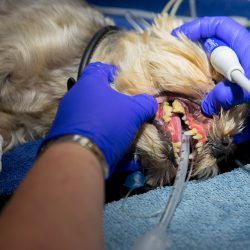
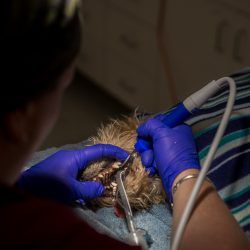
Jackson Animal Hospital’s protocol for pain management is utilized in dental procedures; regional nerve blocks are used for all oral surgeries involving extractions and tumor excisions. Patients will receive additional pain medications after these procedures on an as-needed basis.
Below are some common problems seen
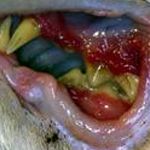
Feline stomatitis is a severe and painful condition of a cat’s mouth where the gingiva (gums) get very inflamed. In most cases, the condition causes ulcers to form in the mouth; these ulcers can involve the lips, tongue, gums, and back of the throat. Cats of any age or breed can be affected. Feline stomatitis can cause excessive drooling, weight loss, anorexia and pain. Extraction is the only permanent treatment for these diseased teeth.
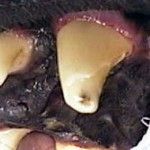
A canine tooth showing an older fracture which will need to be extracted.
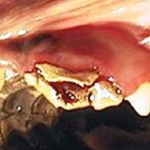
A shattered pre-molar which needs extraction.
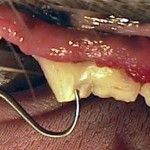
Upper fourth pre-molar showing a crown tip fracture. If bacteria are migrating through this fracture site (seen on radiology as an enlarged root canal), an extraction will prevent abscess formation and pain.
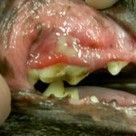
Broken teeth, like this carnassial tooth, will become infected and can abscess over time.
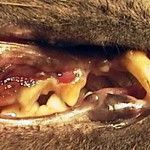
Sixty percent of felines will suffer from cervical neck lesions or cavities, such as the one shown here. These teeth need to be extracted as they are very painful and will eventually break – leaving the root and an open nerve behind.
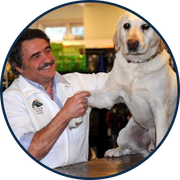
Orthopedic Surgery
We offer a number of Orthopedic Services, Including TATE™ Canine Elbow Surgery, TPLO Surgery, Hip Replacement, Fractures, and more.
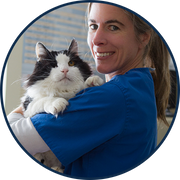
Medicine
We offer all medical and surgical services ranging from routine vaccinations and spays and neuters to bloodwork, ultrasounds, radiographs, exploratory surgery, chemotherapy, MRI and CT scans.
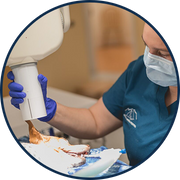
Dental Services
At Jackson Animal Hospital, we specialize in all dental care, from routine cleanings to full mouth extractions, as we believe in the importance of dental health for your pet. Clean and disease free teeth will allow your pet to live a longer and healthier life.
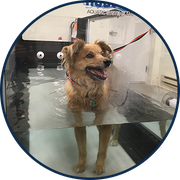
Rehabilitation
Water therapy is an important tool to help animals rehabilitate from orthopedic injuries. We are proud to offer both a Hudson Aquatic Underwater Treadmill as well as a class 3B Laser to assist your pet in recovering to his or her full potential.
